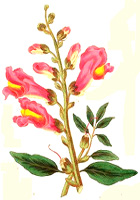This has been a protracted conflict. I have not come to this decision easily. I've had years now to attempt various strategies. I've never fought the weeds, but realized that the weeds were telling me what my soil needed. I aerated. I added lime, compost, and clover. I mowed high. I left the clippings to compost. I let the grass go dormant in the summer to save water. I created garden beds. I hardscaped. I mulched a third of the backyard for an oven area, raised veggie beds, and a play area for the kids.
And yet. I still want just a bit of grass for a little lawn. So we can play a wee bit of soccer. So we can frolick with the dog. And yes, so it can look pretty.
Grass seed never would take. We are outside in the yard too much and just couldn't give it a fighting chance. So much babying. But I hated the idea of supporting the typical sod farmer in the Richmond area whose farm is by the Chesapeake Bay. Sod Farms are exempt from the typical run-off regs for farms. They are one of the biggest polluters of the Bay (not my opinion, but my friend Joe who lobbies for The Chesapeake Bay Association). Yet I didn't want to get my sod from outside this area because of the eco-cost of transportation. I also wasn't ready to hitch my horse to the sod wagon without talking with an expert about all my options. Maybe I just hadn't met the right groundcover yet.
Enter Jerry Carter. When my friend recommended Jerry, I was prepared for the typical landscaper guy. All fescue lawn and double-shredded hardwood mulch. But I was wrong. My first email reply from him was to inform me of the many environmental issues concerning sod and who in the area was attempting organic sod. And then he asked: "do you really need sod?"
This is what won me over. Because let me tell you. Richmondians love their lawns. It takes a brave, clever, enlightened landscaper to suggest that maybe lawns are not the be all and end all of a yard.
We met. We talked. I decided. Since:
And yet. I still want just a bit of grass for a little lawn. So we can play a wee bit of soccer. So we can frolick with the dog. And yes, so it can look pretty.
Grass seed never would take. We are outside in the yard too much and just couldn't give it a fighting chance. So much babying. But I hated the idea of supporting the typical sod farmer in the Richmond area whose farm is by the Chesapeake Bay. Sod Farms are exempt from the typical run-off regs for farms. They are one of the biggest polluters of the Bay (not my opinion, but my friend Joe who lobbies for The Chesapeake Bay Association). Yet I didn't want to get my sod from outside this area because of the eco-cost of transportation. I also wasn't ready to hitch my horse to the sod wagon without talking with an expert about all my options. Maybe I just hadn't met the right groundcover yet.
Enter Jerry Carter. When my friend recommended Jerry, I was prepared for the typical landscaper guy. All fescue lawn and double-shredded hardwood mulch. But I was wrong. My first email reply from him was to inform me of the many environmental issues concerning sod and who in the area was attempting organic sod. And then he asked: "do you really need sod?"
This is what won me over. Because let me tell you. Richmondians love their lawns. It takes a brave, clever, enlightened landscaper to suggest that maybe lawns are not the be all and end all of a yard.
We met. We talked. I decided. Since:
- I really do want a small lawn (I don't have the specific dimensions, but the space is about 200 square feet),
- we need it to be drought tolerant,
- we need it to be durable (dog, lots of entertaining, lots of running kids),
- and it must establish quickly (see above),
we are going to call a sod farm (in the central Va area that is experimenting with organic techniques) about some Bermuda Grass sod. I'm also going to plant some dwarf mondo grass in an area semi-covered with flagstones. I'm thrilled.
So while environmentally-friendly sod is probably not possible in the strictest sense, I'd like to think that I've found a way to solve for the lawn issue while not completely over-riding my environmentalism.
So while environmentally-friendly sod is probably not possible in the strictest sense, I'd like to think that I've found a way to solve for the lawn issue while not completely over-riding my environmentalism.


3 comments:
Hi there, hope you see this even though it is so late! I garden in coastal NC, with two large dogs and one daughter, in a neighborhood that seems similar to yours (I also live in a mid-century brick cape cod). My lawn fell by the wayside with my two dogs (labs), etc. Last year I fenced off a portion and planted Bermuda sprigs--they took beautifully and are tough as can be. Go with Bermuda--it's a pain to keep out of the garden beds, but man, it can take the conditions that you and I seem to have. Good luck!!
Hi there, I'm a student at the College of William and Mary, and the environmental club on campus is hoping to start a project to change the landscaping and sod usage practices of the maintenance personell here. I was hoping you could give me some contact information for Jerry Carter; he sounds like an excellent resource. Thanks!
I’ll be learning about some of the features as I go along. I hope that it eventually proves easier for you the reader to follow the postings and comments.
Sod California
Post a Comment